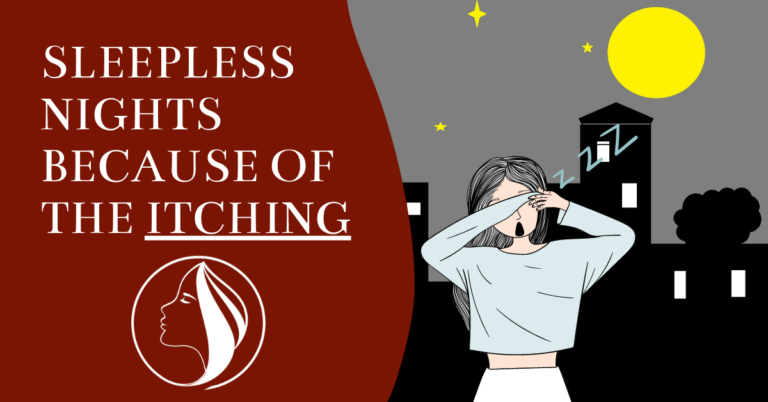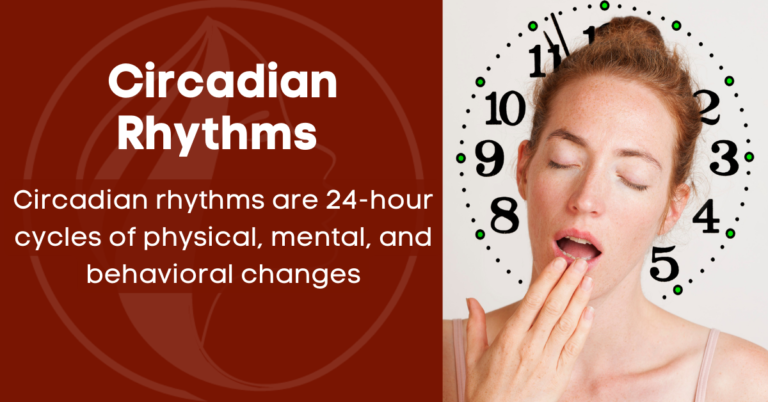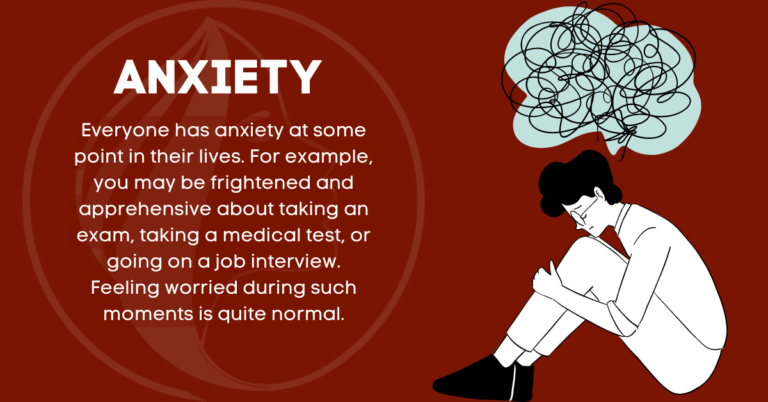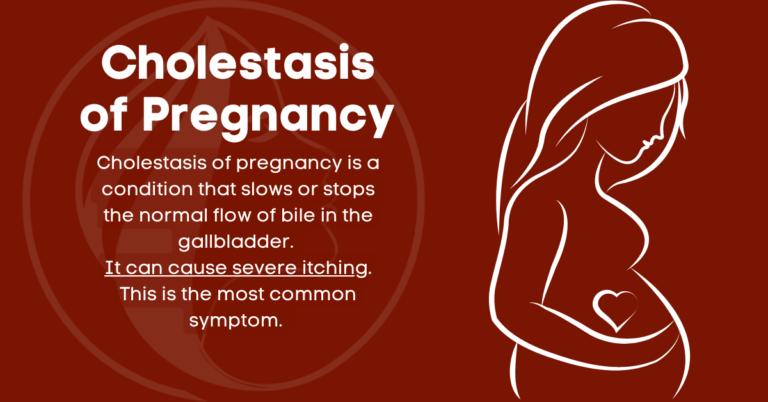
© Copyright 2022 HerGlance. All right reserved.
Itching at night can be caused by various reasons, some of which are nocturnal pruritus, circadian rhythm, sunburn, anxiety, allergies, insect allergies, cholestasis of pregnancy, etc.
To try and help you get rid of sleepless nights we will try to list all the reasons that might be causing itching at night. We will also include a way to stop the itching for every cause so make sure to try and identify your problem on our list.

This name probably doesn’t mean too much to you but it is the most common reason for itching at night.
If you are always itching at night, you may suffer from nocturnal pruritus. There are several causes for this condition.
Many people with the condition have nocturnal pruritus, which can reduce the quality of life and impact mortality. Nocturnal pruritus can occur at any stage of sleep, however, it is most common in phases N1 and N2.
It is defined as a sensation driving the urge to scratch, it can be acute ( it lasts less than 6 weeks) and it can be chronic ( it lasts more than 6 weeks).
It mostly affects older people as their skin tends to be a lot dryer than the skin of young people.
Sleep is a basic restorative neurobiological state that all people must enter regularly to be healthy. Current sleep length standards indicate 7-9 hours of sleep each night for people aged 18 to 64, and 7-8 hours for people over 65. Some experts argue that for younger people 6h is enough to have a healthy body and enough energy to lead an active daily life.
If our sleep is interrupted for any reason, including nocturnal pruritus, it has a big impact on our immune system which becomes weaker.
How to try and fix this condition?
Apply a lubricating, alcohol-free moisturizer to your skin during the day and before bed. Apply cool, wet compresses to soothe the itch. Take a bath in lukewarm water and colloidal oatmeal or baking soda. Turn on a humidifier.
In general, you want to make your skin hydrated.
Circadian rhythms are 24-hour cycles of physical, mental, and behavioral changes. These natural processes are predominantly influenced by light and dark and affect the majority of living things, including animals, plants, and bacteria.
Circadian rhythms, among other things, regulate drowsiness and wakefulness, hormone activity, appetite, digestion, and body temperature.
The body produces more heat in the evening, and blood flow to the skin rises, which may contribute to midnight itching.
Furthermore, skin loses water during the night, resulting in dryness that can be irritating. That water loss is most likely caused by changes in the skin’s barrier function at night, which might potentially allow additional irritants in.
Inflammation might also be a factor. The body produces more cytokines, which are immune system proteins that cause inflammation, at night. This might cause itching or aggravate it.
This might cause itching or aggravate it. Likewise, the body’s synthesis of corticosteroids, which reduce inflammation, decreases.
It’s also likely that you notice itching more when you’re sleeping than when you’re busy and preoccupied during the day.

Circadian rhythms can impact vital bodily functions such as:
Most people, however, perceive the influence of circadian rhythms on their sleep habits.
The SCN regulates the synthesis of melatonin, a hormone that induces sleep. It collects light information from the optic nerves, which transfer information from the eyes to the brain. When there is less light, such as at night, the SCN instructs the brain to produce more melatonin, causing you to get drowsy.
If you are itching at night and have problems sleeping it might be time to reset your circadian rhythm.
Excessive sun exposure without protective clothing or sunscreen can result in a red, prickling sunburn that leaves you clawing at your skin.
The itching is most likely caused by damage to the top layer of your skin, the epidermis, which includes numerous sensitive nerve endings.
Sunburn is defined as inflamed, irritated skin that is hot to the touch. It frequently emerges within a few hours of spending too much time in the sun.
Sunburn relief can be obtained by easy self-care techniques such as taking pain medications and cooling the skin. However, the sunburn may take many days to disappear.
Everyone should apply sunscreen or practice other skin-protection routines to avoid sunburn all year. It is especially vital while you are outside, even if the weather is chilly or gloomy.
Anxiety is a state of uneasiness that can range from minor to severe.
Everyone has anxiety at some point in their lives. For example, you may be frightened and apprehensive about taking an exam, taking a medical test, or going on a job interview.
Feeling worried during such moments is quite normal.
However, some people struggle to keep their fears in check. Their worry is more persistent and frequently interferes with their everyday life.
Anxiety is the primary symptom of several conditions, including:

Anxiety problems can induce itchy skin in certain persons, and itchy skin issues can contribute to anxiety. One can aggravate the other.
Both can be adequately treated, but it is critical to understand whether the anxiety and itching are related.
Itching caused by worry is no less genuine than itching caused by other reasons, although therapy may differ.
Anxiety disorders afflict 40 million individuals in the United States each year, according to the Anxiety and Depression Association of America.
More than one in every five Trusted Source persons will have a persistent itch at some point in their lives.
Even if your itching is caused by anxiety, excessive scratching might lead to significant skin problems.
This might result in inflamed, damaged, or bleeding skin. It may also result in infection.
Not only that, but scratching is unlikely to ease the itch.
In this case, we advise you to see a professional or even maybe two. This means you will have to see a Psychologists who will first of all check do you have anxiety and if you do, how to deal with it.
If anxiety is causing the itching at night that will ease your sleep and improve the quality of your life.
If your skin is in bad condition because of the scratching, we advise you to pay a visit to the Dermatologist too. He will give proper treatment to your skin and help you get your sleep back.
Many things might cause an allergic response in our skin. Nickel, which is found in many things that we contact every day, is one of the most prevalent chemicals that might produce an allergic skin response.
Nickel-containing products include mobile phones, jewelry, eyeglass frames, zippers, and belt buckles.
Nail polish, scents, shampoos, latex, and cement are all examples of things that might induce an allergic skin reaction.
You will most likely develop a rash and an overwhelming itch if you have an allergic response.
You must identify the source of your allergy so that you can avoid contacting (or using) the source of the itchy rash. This can be difficult and frequently need the assistance of a dermatologist or allergist.
Many individuals associate insect allergies with warm weather. Warm weather does herald the entrance of certain unwelcome guests, such as stinging and biting insects.
However, two extremely frequent “bugs” may be found in houses and buildings all year.
Although neither bites nor stings can create an allergic reaction, both cause allergies and asthma in many people which then can be noticed as itching at night.
Mosquitoes, kissing bugs, bedbugs, fleas, and some flies are the most frequent biting insects known to trigger an allergic response. Most people who are attacked by insects experience discomfort, redness, itching, stinging, and slight swelling in the location of the bite.
Insect bites can seldom cause a life-threatening allergic response.
A Lone Star tick bite might create a meat allergy. These ticks contain alpha-gal (a sugar).
When a tick bites a human, alpha-gal is released into circulation. The person’s immune system then responds to it. Alpha-gal is also present in mammalian flesh (beef, lamb, pork).
Consult an allergist if you develop allergy symptoms after eating meat.
Non-stinging and non-biting insects, notably cockroaches and insect-like dust mites, can also induce allergic responses.
These two insects may be the most prevalent cause of allergy and asthma year-round. A dust mite, unlike a cockroach, is too tiny to be seen with the human eye.
The excrement and body of the cockroach and dust mite trigger allergic responses. They can also cause asthma symptoms and attacks.
HOW TO GET RID OF THEM:
This might happen when your immune system overreacts to common chemicals present in meals or drinks.
According to the NHS, the symptoms range from moderate to severe and include sneezing, itchy eyes, swelling, rash, hives, stomach pains, nausea, vomiting, and trouble breathing.
Symptoms may appear minutes to hours after taking a meal that produces an allergic reaction, depending on your immune system’s response.
Cow’s milk, eggs, peanuts, fish, shellfish, tree nuts, wheat, and soy are all common allergy trigger foods.
This is an emergency and you must visit your doctor as soon as possible.
You must identify the source of your allergy so that you can avoid contacting (or using) the source of the itchy rash. This can be difficult and frequently need the assistance of a dermatologist or allergist.

If you are pregnant then the reason for itching at night might be cholestasis of pregnancy.
The liver ailment intrahepatic cholestasis of pregnancy, also known as cholestasis of pregnancy, develops in late pregnancy. The syndrome causes severe itching but no rash. Itching commonly occurs on the hands and feet, although it can occur elsewhere in the body.
Itching at night is more noticeable as you are not occupied by daily tasks, that way it interrupts your sleep and reduces the health of both you and your baby.
Cholestasis during pregnancy may be exceedingly unpleasant. However, the possible consequences for you and your baby are more concerning. Because of the possibility of problems, your doctor may advise you to have your baby early.
If you are pregnant and feeling itching, then contact your pregnancy care provider immediately.
All of the listed conditions require professional attention, and you should not delay a visit to your doctor.
These are lifestyle changes you can do to prevent itching at night and get your sleep back:
Found Our Post Helpful? READ MORE

© Copyright 2022 HerGlance. All right reserved.